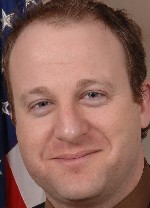|
12/15. The House Judiciary Committee (HJC)
began its mark up of
HR 3261 [LOC |
WW], the
"Stop Online Piracy Act" or "SOPA". The HJC is considering an
amendment
in the nature of a substitute [71 pages in PDF], which is also known as the
manager's amendment, and amendments thereto.
The HJC met from 10:00 AM until 9:30 PM, with one break in the afternoon to
vote on bills on the House floor. The HJC is scheduled to resume this mark up at
10:00 AM on Friday, December 16.
Rep. Lamar Smith (R-TX), the
sponsor of HR 3261, and Chairman of the HJC, stated at the close on Thursday
that "it will be a long hard day tomorrow".
The debate and roll call votes on Thursday disclosed that there are more than
enough votes on the HJC to pass this bill in Committee, and defeat any amendments, whatever
their merits. Moreover, support for the bill transcends party and ideology.
Nevertheless, a small bipartisan group is vigorously opposing the bill, offering
amendments, and insisting upon roll call votes. The ongoing debate is directed
in large part at influencing opinion outside of the HJC.
The most active participants in the debate who favor passage include Rep.
Smith, Rep. Bob Goodlatte (R-VA),
Rep. Howard Berman (D-CA), and
Rep. Mel Watt (D-NC). Rep. Goodlatte and Rep. Berman are
the Chairman and ranking Democrat on the HJC's Subcommittee on Intellectual Property, Competition,
and the Internet. Although, there was no Subcommittee mark up of this bill.
The most active participants in the debate who oppose the bill include
Rep. Jared Polis (D-CO),
Rep. Zoe Lofgren
(D-CA), Rep. James Sensenbrenner (R-WI),
Rep. Darrell Issa (R-CA), and
Rep. Jason Chaffetz (R-UT).
The same Republican trio of Sensenbrenner, Issa and Chaffetz constituted the spirited
Republican opposition to HJC passage of the data retention bill in July. The
full House has not yet taken up that bill. See, HR 1981
[LOC
| WW] and stories in
TLJ Daily E-Mail Alert No.
2,278, August 3, 2011.
 Rep. Polis (at right) is a second term
Representative from the state of Colorado, and the most junior Democrat on the HJC.
He demonstrated at the first day of the mark up that he is one of the HJC
members most familiar with both the bill and proposed amendments, and the
business practices and technology that would be affected this legislation.
His district includes the northern and northwestern suburbs of Denver, Boulder
and the University of Colorado, and some
of Colorado's mountains and ski resorts. Rep. Polis (at right) is a second term
Representative from the state of Colorado, and the most junior Democrat on the HJC.
He demonstrated at the first day of the mark up that he is one of the HJC
members most familiar with both the bill and proposed amendments, and the
business practices and technology that would be affected this legislation.
His district includes the northern and northwestern suburbs of Denver, Boulder
and the University of Colorado, and some
of Colorado's mountains and ski resorts.
Proponents of the SOPA argued that it is a collection of measures necessary to
protect American intellectual property, prosperity and jobs, and in the case of
certain counterfeit products, protect public health and safety.
Opponents argued that passage of the bill would harm innovation and U.S.
internet companies, threaten free speech, provide oppressive foreign governments
a pretext for engaging in similar regulation for the purpose of suppressing
political expression, balkanize the internet, and create cyber security threats.
Opponents also complained about the process for passage of this bill. That
is, the bill was only recently introduced (October 26), there has been only one
hearing, there has been no hearing to address concerns about Domain Name Server
Security Protocols and cyber security, there was no Subcommittee mark up, and
Rep. Smith did not release the amendment in the nature of a substitute until
Monday, December 12.
Some proponents of the bill argued that they have been reaching out to
companies and groups that oppose this sort of legislation for years, to no
avail. They also noted that the bill's opponents have put forth no alternative
legislation to deal with foreign online piracy affecting U.S. intellectual
property.
Opponents argued that the process is not only unfair, but that it could
result in passage of a premature bill by uninformed members. Their arguments
were further supported by the quality of the debate. Throughout the day both
proponents and opponents advanced arguments that reflected an unfamiliarity with the
text of the manager's amendment,
and amendments thereto, as well as the relevant technology.
The bill's opponents also engaged in dilatory and obstructionist practices on
December 14. They delayed opening statements by insisting upon a quorum. They
demanded a complete reading aloud of the 71 page amendment in the nature of a
substitute. They engaged in lengthy debate on doomed amendments. And, they
insisted upon a series of roll call votes when there was no doubt as to the
outcome. However, none of the bill's opponents stated that these are dilatory
practices, or that their goal is to postpone further consideration until next
year, and perhaps prevent passage in the 112th Congress.
Many of the amendments defeated on Thursday would have eliminated or denuded
key provisions of the bill. However, many amendments that would not have undermined the
basic structure of the bill, or that were largely symbolic, failed on lopsided
votes.
An amendment to preclude the Department of
Justice (DOJ) from using the authority under this bill to protect the
intellectual property of purveyors of pornography and obscenity mustered only 9
votes. An amendment to allow recovery of attorneys fees and costs by the
prevailing party in private litigation under the bill mustered only 11 votes.
|